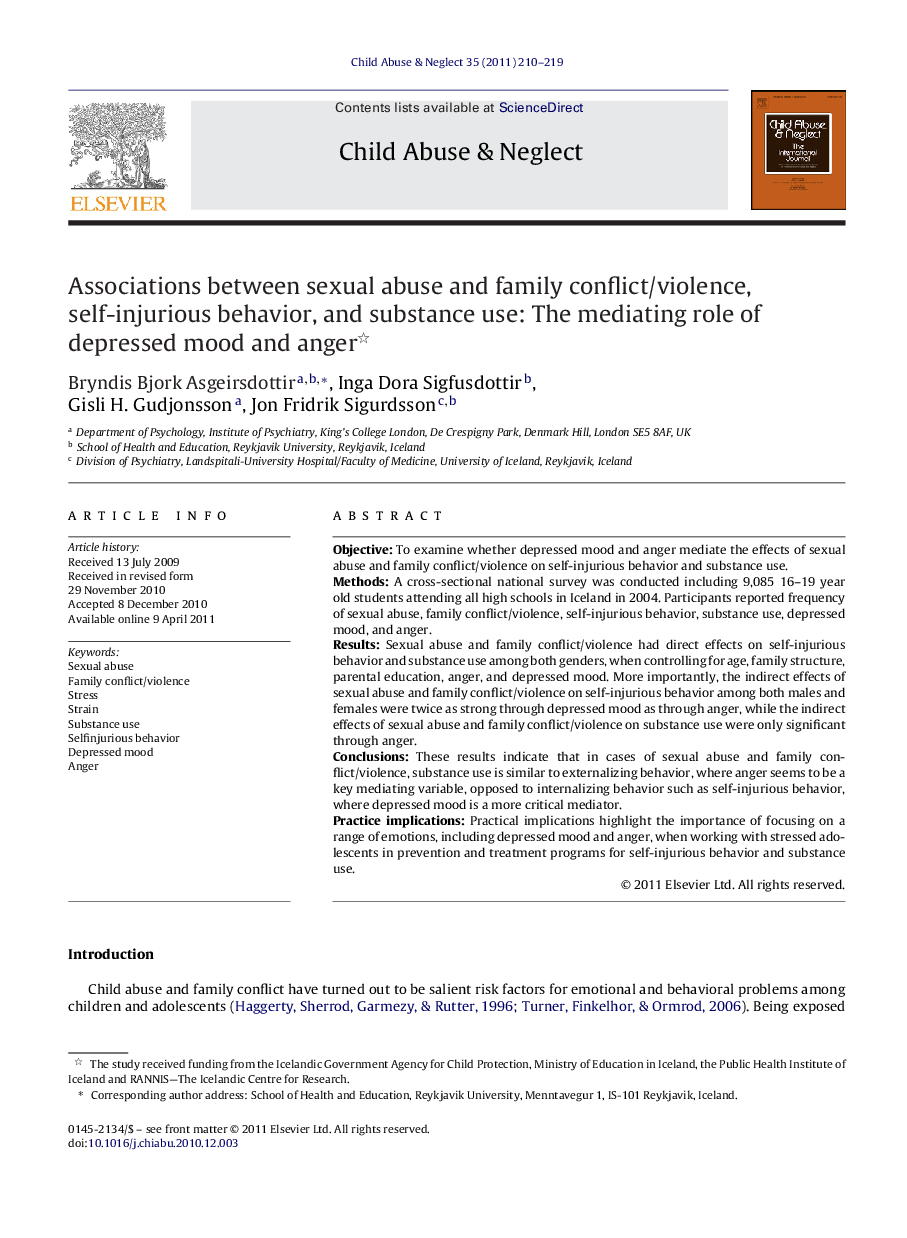| Article ID | Journal | Published Year | Pages | File Type |
|---|---|---|---|---|
| 345119 | Child Abuse & Neglect | 2011 | 10 Pages |
ObjectiveTo examine whether depressed mood and anger mediate the effects of sexual abuse and family conflict/violence on self-injurious behavior and substance use.MethodsA cross-sectional national survey was conducted including 9,085 16–19 year old students attending all high schools in Iceland in 2004. Participants reported frequency of sexual abuse, family conflict/violence, self-injurious behavior, substance use, depressed mood, and anger.ResultsSexual abuse and family conflict/violence had direct effects on self-injurious behavior and substance use among both genders, when controlling for age, family structure, parental education, anger, and depressed mood. More importantly, the indirect effects of sexual abuse and family conflict/violence on self-injurious behavior among both males and females were twice as strong through depressed mood as through anger, while the indirect effects of sexual abuse and family conflict/violence on substance use were only significant through anger.ConclusionsThese results indicate that in cases of sexual abuse and family conflict/violence, substance use is similar to externalizing behavior, where anger seems to be a key mediating variable, opposed to internalizing behavior such as self-injurious behavior, where depressed mood is a more critical mediator.Practice implicationsPractical implications highlight the importance of focusing on a range of emotions, including depressed mood and anger, when working with stressed adolescents in prevention and treatment programs for self-injurious behavior and substance use.
